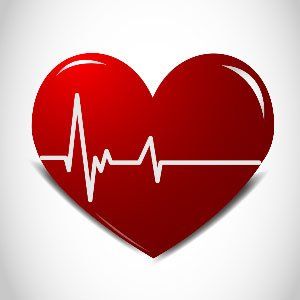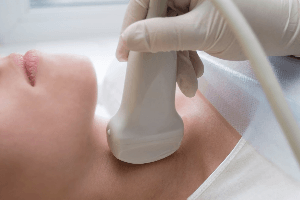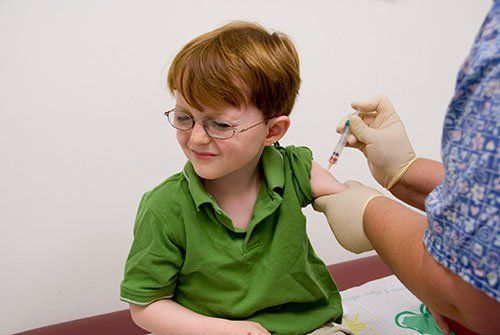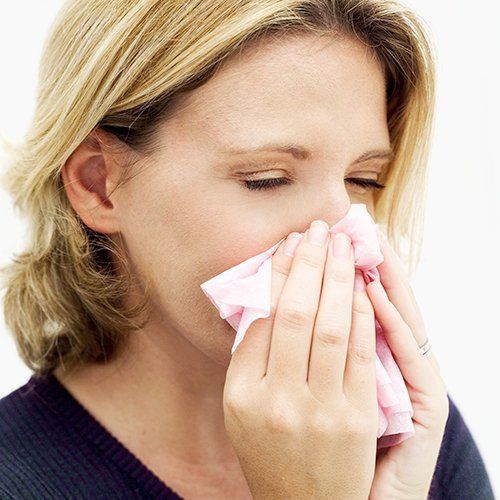5 Causes of Night Sweats | Hampstead Medical Center PC
Admin • April 29, 2021

5 Causes of Night Sweats (And How to Manage It)
If you perspire at night to the extreme point of soaking your bedclothes and sheets, it's time to look for the cause. In many cases, night sweating is a temporary nuisance, but if it is an ongoing problem, it may be due to a medical condition that requires the care of a physician. Be informed by familiarizing yourself with a few common causes of night sweats.
1. Sleeping Environment
If you have been given a clean bill of health by your doctor and have no underlying medical issues, you might want to consider your sleeping environment, as well as what you wear to bed. If your bedroom is overly warm, or if you're bundled up a layer or two of blankets and heavy night clothes, you might sweat excessively in bed.
Night sweats due to a hot environment may disrupt your sleep and possibly cause dehydration. For a simple solution, keep your room at a comfortable temperature at night and use a lightweight cotton blanket that allows air to circulate. Wear moisture-wicking sleepwear or fabric that is breathable, such as cotton or linen. Polyester is nonbreathable, so avoid this fabric for sleepwear.
2. Prescription Medications
If you are currently taking prescription medications, ask your doctor about possible side effects, as some medications may cause excessive sweating. Care you taking antidepressants, prescription pain relievers or diabetes medication? Are you using medications to control acid reflux? Any of the above-mentioned drugs may contribute to night sweats.
However, before you stop taking your medication, discuss this with your doctor. You might be advised to take a different medication that is less likely to cause you to perspire.
3. Viral Infections
Many types of infections, including viral and bacterial, may cause excessive sweating, particularly at night. A bad cold, a stomach virus or influenza may cause you to perspire, especially if fever is present. More seriously, tuberculosis commonly causes night sweats.
If you're battling an infection of some kind, your night sweats should diminish once the infection is cleared up. If you develop a high fever, vomiting, and diarrhea, seek medical attention, as dehydration is a possibility and this may become serious if not treated.
4. Sleep Apnea
Sleep apnea not only disturbs your sleep and causes night sweats and fatigue, it could also threaten your life if left untreated. If air is unable to flow directly from your nose and mouth, it becomes obstructive and compromises your breathing at night. Excessive sweating and snoring are commonly reported in those with obstructive sleep apnea.
If you believe you have a sleeping disorder like mentioned above, see your doctor for a diagnosis. Management for sleep apnea may include the use of a continuous positive airway pressure device, known as a CPAP. Oral pressure therapy may also help, which is done with the use of a different type of device.
5. Menopause Symptoms
If you are menopausal, you may experience night sweats fairly regularly. Hormone imbalances that typically occur during menopause may cause excessive sweating, particularly while you sleep. Night sweats during menopause are often accompanied by hot flashes.
Ask your doctor if there is medication or natural remedies you might take to control the night sweats during menopause. In addition, you might avoid alcohol consumption, caffeinated foods and beverages, and smoking, as all of these may worsen your condition. If your menopausal night sweats are becoming unmanageable, turn on the air conditioning at night or use an electric fan by your bedside.
Also, if you are overweight, speak to your doctor about how to effectively and sensibly lose weight. Obesity may contribute to night sweats and may make menopausal hot flashes worse.
If none of the above doesn't help your condition, see your physician for a medical examination
and evaluation. You might have a medical condition that is causing you to perspire and may be treated with proper medication.

The IUD, or intrauterine device, is one of the most effective methods of birth control available. Unlike birth-control pills, you do not need to remember daily to administer medication, and the device itself lasts longer than shots and is easier to use than rings. Many women find all of these benefits desirable for a birth-control method. There are two general types of IUDs available to women. The first type is the copper IUD, and the other is hormonal. Which one is right for your personal birth-control needs?

Although the risk of cardiovascular disease increases as you get older, many people who die suddenly of a heart attack didn't previously know they had heart disease. That's why identifying risk factors for heart attack and stroke is so critical to cardiovascular health. Fortunately, with regular exams and the many types of screening tests available, doctors can detect early signs of heart disease.

Even if you've never had cause to doubt your thyroid function, if you're a female who has recently given birth, you may be at risk for thyroid issues. An estimated 12 percent of Americans deal with thyroid trouble at some point during their adult lives, and women are significantly more likely than men to develop a thyroid-related ailment. Unfortunately for new mothers, many of the most common signs of an underactive thyroid (like weight gain, mood swings, fatigue, and irritability) are also quite common for those dealing with a newborn's frequent night wakings and the realities of a post-partum body. Read on to learn more about some common (and not-so-common) signs that you could be dealing with a pregnancy-induced thyroid problem as well as some treatment options that can be safely administered or performed while you're breastfeeding. What Can Cause Thyroid Problems During Pregnancy? As with many other hormonal disorders, there are often more questions than answers when it comes to thyroid function. However, researchers have pinpointed a few factors and health conditions that can raise the risk of a woman’s developing a thyroid issue during or immediately after pregnancy. For example, while only around 7 percent of women are at a general risk of developing postpartum thyroiditis, this risk increases to 25 percent for women who have Type 1 diabetes or who dealt with elevated antithyroid antibodies during pregnancy. Women whose anti-peroxidase (anti-TPO) antibodies were elevated during pregnancy may have a 1 in 2 chance of developing postpartum thyroiditis, and those who have dealt with thyroid issues in the past (or during previous pregnancies) also deal with a significantly increased risk. In other cases, thyroid problems may have no cause that can easily be pinpointed; the rush of various hormones during pregnancy and the strain they can put on various systems, including the endocrine system, can create a sort of "perfect storm" in which thyroid problems may thrive. What Are Some Signs You're Dealing With Post-Pregnancy Thyroid Issues? Thyroid problems can take a number of forms, including hypothyroidism (an underactive thyroid), hyperthyroidism (an overactive thyroid), Graves' disease (an autoimmune condition that causes goiter), or Hashimoto's disease (an autoimmune condition in which the body's immune system attacks healthy thyroid cells, eventually stopping all thyroid function). The signs and symptoms for each thyroid disorder are unique and often at opposite sides of the spectrum. For example, hypothyroid patients often report being cold, having dry skin, sleeping more than normal, or gaining weight without trying while hyperthyroid patients sweat profusely, suffer from insomnia, and can lose a significant amount of weight in a brief period. Postpartum thyroiditis often manifests as either an underactive or overactive thyroid, which usually normalizes itself in a few months. Symptoms lasting longer than that or that appear to be getting worse may necessitate medical intervention. What Treatment Options for an Underactive Thyroid Are Best for New Mothers? Whether you suspect you have postpartum thyroiditis or have been formally diagnosed, you may be worried about how your potential treatment options could impact your ability to breastfeed and what effect (if any) they might have on your child. Fortunately, there are a number of effective options from which to choose. If your postpartum thyroiditis is deemed autoimmune in origin, there is some evidence that taking selenium supplements could help normalize your thyroid function without requiring you to take hormonal medication (which might pass into your milk supply). If your symptoms aren't severe and don't impact your daily life, you may instead opt for watchful waiting, maintaining contact with your doctor and reporting any worsening symptoms but avoiding medication or other treatment for the time being. However, if your doctor recommends supplemental thyroid hormone, this usually means some intervention is necessary to prevent permanent damage to your thyroid and the organs and systems that depend on a steady dose of hormones. Make an appointment with Hampstead Medical Center PC to get started taking care of your health.







